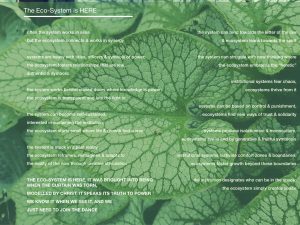On the 8th Feb we are having a taster day for the certificate in pioneer mission that will be starting in September as part of the Northern Pioneer Centre. The day the Pastoral Statement landed I was planning a session for the taster event on the stories pioneers find themselves in and using Arbuckles notions of dissent and lament. Particularly how pioneers led by Jesus find themselves so often on the edge and how they need to value the experiences of seeing the beloved manifested in those places as resource for hope and a call to dissent. “There can be no constructive change at all, even in church, unless there is some form of dissent. By dissent I mean simply the proposing of alternatives, and a system that is not continuously examining alternatives is not likely to evolve creatively.”
Arbuckle Refounding the Church
I guess this is where the church (as denominations) often gets caught, as it fails to understand system complexity. This system complexity helps make spaces that try to examine, try to propose alternatives, and even try’s to listen (E.g. shared conversations) but is placed within an institution (and fixed false orthodoxy paradigm rooted in the enlightenment) that favours reductionism that can never compete with the complexities of following the way of love in the person Jesus. So dissent really matters, because orthodoxy that exists in a vacuum is not truth, and the Jesus way demonstrates orthopraxis that love is a way of dissent toward shalom.
At the same time my FB memory popped up with “ Whisper, somewhere beyond usefulness is a land where play reigns.” For May 29-31st we are following the Taster day with a Pioneer Fiesta(all ages welcome). In the heart of the Lakes there will be camping (with the opportunity to come early if you want a holiday) or book a B&B, and join in the stories, food and play. We are playing with different voices animating Mark 4 going to the other side of the lake. The word animating is used deliberately as there will be playful experiments including a messy take, an outdoors take, an artists take, an entrepreneurs take, a priests take, an inclusive take etc all around Mark 4. We are also Literally taking a paddle steamer to the other side of the lake and having a band and party on board. If you want to find out more email godforallevents@carlislediocese.org.uk.
At the moment I know I am called to be on the inside edge of this system and my commitment to the bride of Christ keeps me hanging there. At times I find playing with words is one of the few ways I can cope when the institution gets too much so here is an offering Of hopeful playful dissent.
Love is judged unworthy and tears of sadness grow.
Acidic edicts, camouflaged in priesty garments,
close doors to grace filled embraces.
Love sits outside with the masses
Bewildered at processes so reduced so disconnected
and so this holy water from different wells will flow.

